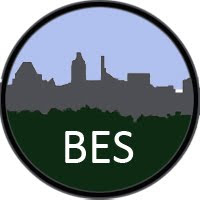BES is a far flung, disciplinarily diverse project. We do many things to apply centripetal force to a situation that seems naturally to be dissipative. One centering activity is to identify a “book of the year.” In the past, we have had two such books. They were chosen to provide useful and interesting background on Baltimore, in the case of Sherry Olson’s Baltimore: The Building of an American City (1997), and to highlight the contribution of one of our own to urban studies, in the case of Austin Troy’s The Very Hungry City. This year’s BES Book of the Year has a different purpose.
The edited volume by Samuel Scheiner and Michael Willig
The Theory of Ecology has been chosen to help the BES community use ecological theory better. This goal emerges from the Mid-Term Review conducted by an external visiting committee in October, 2013. The critique emerging from that review made clear that as a project, we need to be able to better articulate the theories that we use, to tie them together more effectively, and to link broad theories more clearly to the specific research activities which we pursue.
(2011) on
The first BES Webinar, to be held on Tuesday 4 March,
will briefly present the high points of one of the chapters in this book, and provide the opportunity for us to discuss the insights and relevance of the chapter to the structure and integration of BES research. The purpose of this session is to learn about the nature and structure of ecological theory. It will be more useful for BES if we treat this as an opportunity to absorb, rather than attempt to critique, a way to understand and use theory.
The main reading and the background texts all come from Scheiner and Willig’s book. I hope that members of BES will get their own copies of this book, or will request that their institutional libraries obtain it. If there are many members of BES at an institution, it might be a good idea to put the book on reserve. The book is available in paper and electronic versions from “the usual suspects.” Here are the readings for 4 March:
Main Reading:
Kolasa, J. 2011. Theory makes ecology evolve. Chapter 2, pp 21-49, in S.M. Scheiner and M.R. Willig, editors. The Theory of Ecology. University of Chicago Press, Chicago. This chapter puts the hierarchical approach to theory to work, and gives examples of theory as an evolving pursuit throughout the history of ecology. It clarifies the “jobs” that theory performs in science, and shows the broadest way to conceive of theory and its relationships with data and generalization. Putting the insights of this chapter to work in BES should help clarify our own theoretical structures and the relationships to specific research activities.
Background Readings:
Scheiner, S.M. and M.R. Willig. 2011. A general theory of ecology. Chapter 1, pp 3-18, in S.M. Scheiner and M.R. Willig, editors. The Theory of Ecology. University of Chicago Press, Chicago. This chapter emphasizes the components of theory, the hierarchical structure of theory (general, constitutive, model), and articulates the deepest and most general propositions underwriting the science of ecology.
Collins, J.P. 2011. Foreword, pp ix-x, in S.M. Scheiner and M.R. Willig, editors. The Theory of Ecology. University of Chicago Press, Chicago. By one of contemporary biology’s most profound thinkers. A former Director of NSF’s Division of Environmental Biology, and an author of an important paper on contemporary urban ecology in the US at its birth. This introductory overview puts ecological theory in a very broad context.
This may seem like a lot to read. But BES is a large and complex project. We only identify one book each year as a focus of learning and discussion among all members of the BES community. We hope that’s not too much to ask.
Join the Webinar
Please join us via Go-To-Meeting at 2 p.m. Eastern Standard Time on Tuesday 4 March to discuss these three selections from our Book of the Year. Go here at that time to join the meeting:
https://global.gotomeeting.com/join/882708421 The meeting will be recorded and archived for those who cannot join live. Go To Meeting will load an app to permit you to contact the meeting using your computer mic and speakers (or better, headset). If you want to join by phone, that option will also be presented.
RSVP
Please RSVP, either for acceptance or regrets to Holly Beyar, BES Project Facilitator at this email: beyarh at caryinstitute dot org. Important background information for the webinar and its archive will be circulated to those who RSVP either way.
Don’t miss this.



